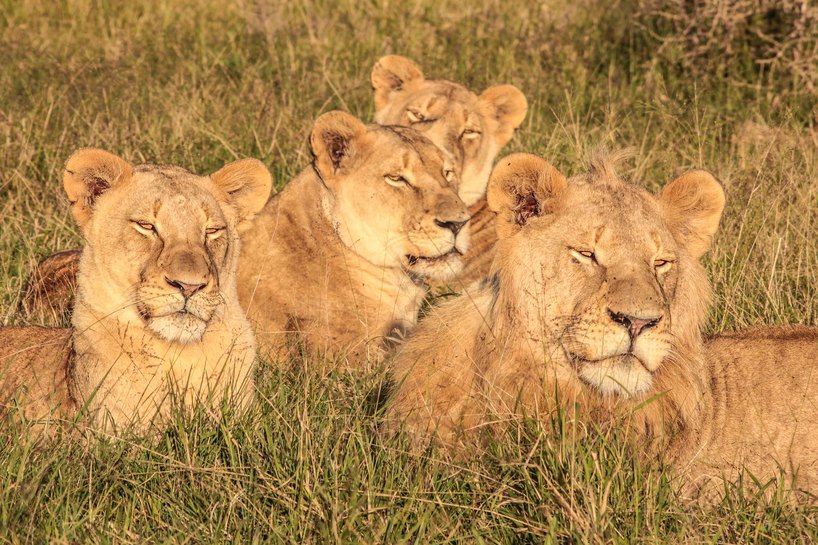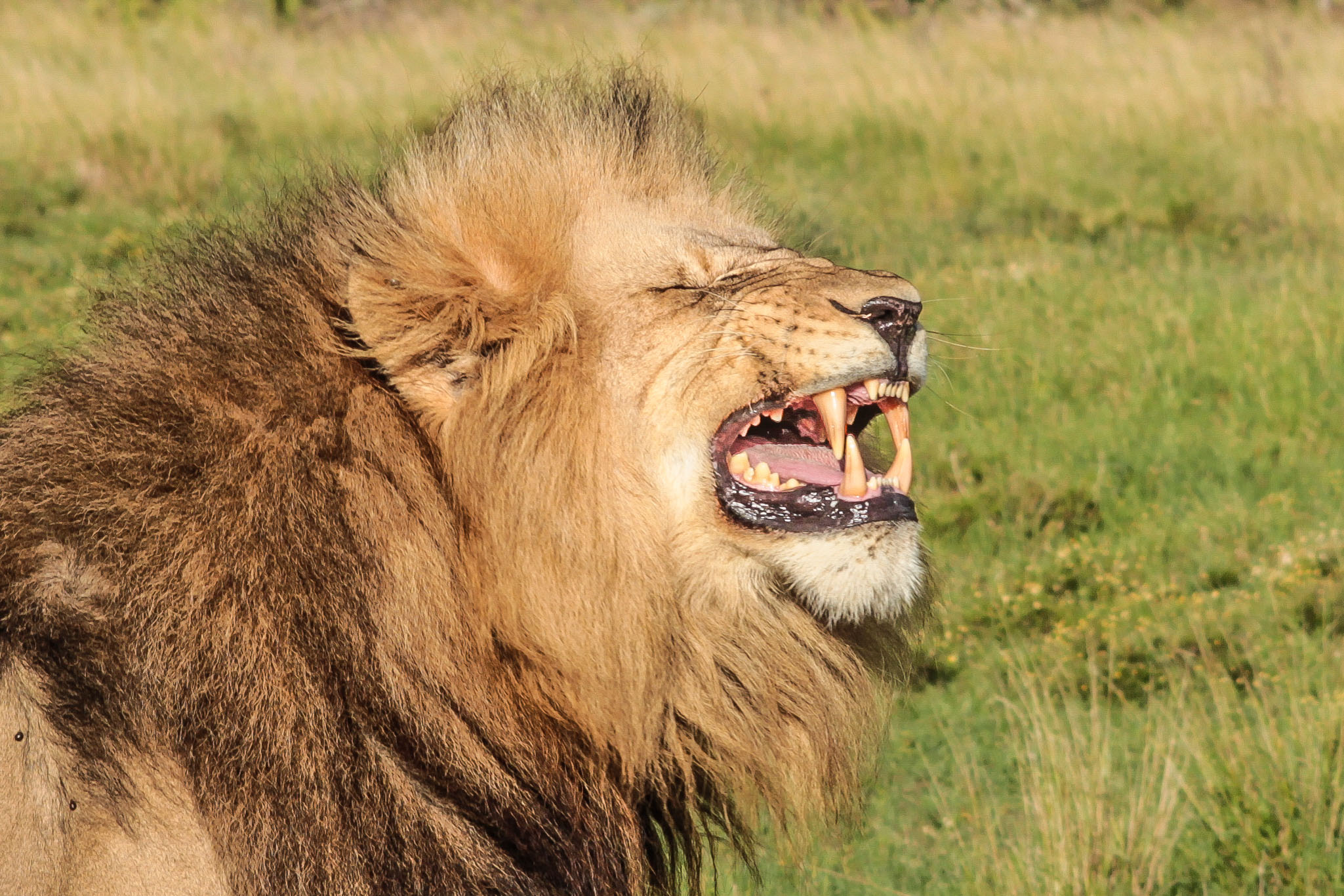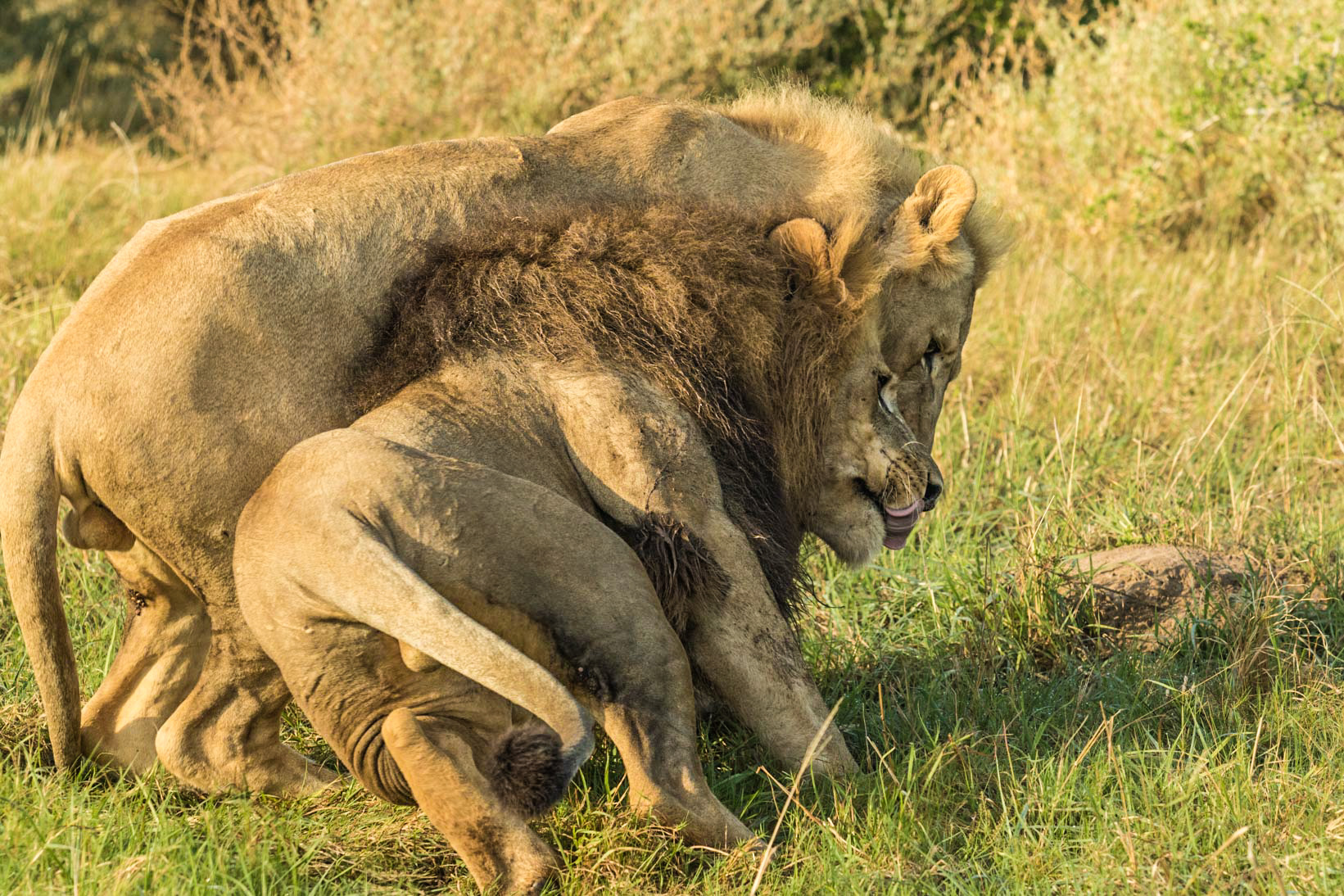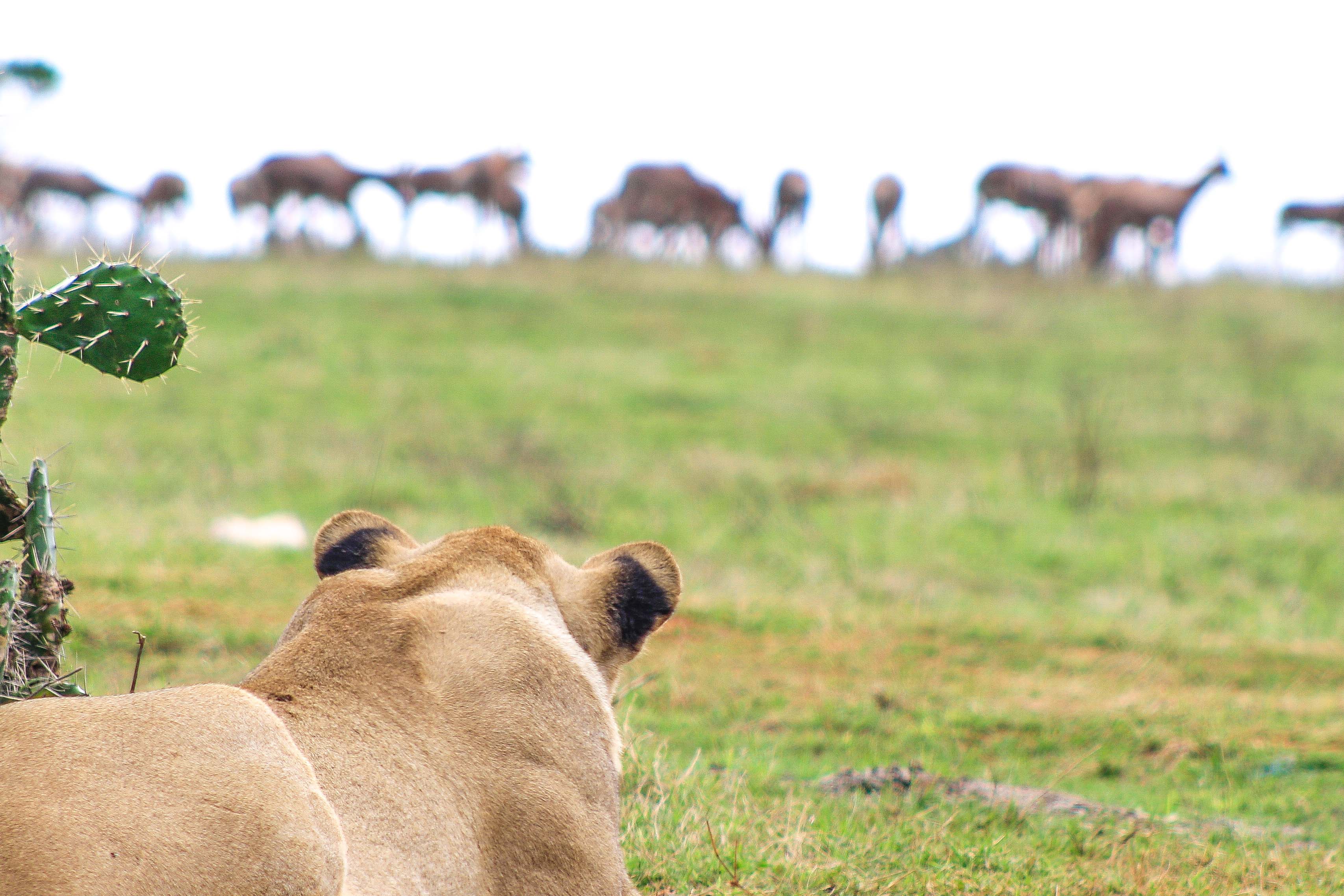Three Interesting Lion Behaviours

You may have seen interesting lion behaviour on National Geographic or other wildlife documentaries and perhaps when spending time with lions in their natural environment while on safari at Kariega Game Reserve. The second largest cat in the world (behind tigers) displays complex and interesting behaviour. We've gathered some information from our knowledgable safari guides and selected three interesting lion behaviours to feature in this article.
Interesting Lion Behaviour: Bonding
Lions are the only big cat species that form social groups which can be made up of a dominant male, sub-adult males, females and cubs. Lions spend all their time together in a pride except for when they are hunting, giving birth or mating.
Interaction between lions in the pride is very important and maintains a bond between individuals and keeps the peace within the group. This daily interaction can be seen in many different ways. The most obvious way is when individuals meet up with each other and nudge their heads or bodies against the other member of the pride. If the receiver is happy with this interaction they will return the gesture of affection, but if there is some negative vibe the receiver will make sure the individual who started the interaction knows about it with a big snarl and even some growling or a slap to the face, much like humans do sometimes!
Interesting Lion Behaviour: Hunting
At Kariega Game Reserve the lion pride likes to split up sometimes. The males and the females go their separate ways for a few days before joining up again. Both male and females hunt while they are separated. This shows that the perception that only lionesses hunt and the males just laze around is incorrect.
Lions are efficient hunters and will make a kill every three to four days, depending on what opportunities arise and how much they ate at their last meal. Africa's majestic big cats are very opportunistic and if they see an injured animal they will not let dinner pass by, even if they have recently eaten. After a hunt the pride will eat as much as they can for as long as they can and then sleep it off.
Older lions are less active as they need to retain their energy for hunting. Cubs are the most active members of the pride because they suckle from their mothers and eat the food that is provided by the pride.
Hunting can be very dangerous for lions and they usually try to get the easiest meal where there is the least risk of getting injured. If a lion gets kicked by a zebra it can break it's jaw and if it is gored by a warthog this can result in death. Some lions have a preference for a certain kind of meat and this may override the risk.
Lions usually hunt at night as they can see very well in low light and this gives them the upper hand. Lions will also hunt into the wind to make sure that their scent can't be detected by their prey. However, it is not uncommon to see lions hunting during the day. The lions will need to spend more effort to stay undetected until they can get close enough to pounce on the prey.
Interesting Lion Behaviour: Smiling
If you have been on safari you may have been lucky enough to view a pride of lions and come across a male lion or lioness lifting their heads and smiling. This looks very comical but it actually plays an important role in the communication between pride members.
While humans communicate mainly with sound and hand gestures, lions need to communicate using their senses. A lion has a very good sense of smell which it uses to communicate important information within the pride structure. For example, when a male lion is walking around the reserve he will stop periodically and turn around, lift his tail and spray his urine all over a bush. This is how male lions mark their territory and make sure everyone knows where the boundaries are. Female lions also communicate using the smell in their urine. When females are on heat or want the other members of the pride to know where they are, they urinate on a chosen spot and the others will get the information when they smell the urine.
When lions smell urine, they tilt their heads up and then bare their teeth by lifting up their top lips. This interesting lion behaviour is called a flehmen grimace or flehmen response and make the animal look like it is smiling. The name is derived from German and means to 'bare upper teeth'. The lion sucks air in through it's front teeth and forces it over an area in the roof of it's mouth called the Jacobson's organ or vomeronasal organ (VNO). This organ decodes the pheromones and other scents left behind in the urine.
Many other animals also display this interesting behaviour including horses, antelope and other cat species.

Do You Have Interesting Lion Behaviours to Share?
Have you seen any other interesting lion behaviours? If so, please share them with us in the comments below. We are very happy to post responses that include more information about each particular behaviour.
To see photographs and videos plus read more about interesting animal behaviour please browse through our blogs and connect with us on Facebook, Instagram, Twitter and YouTube.











